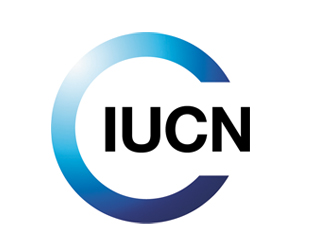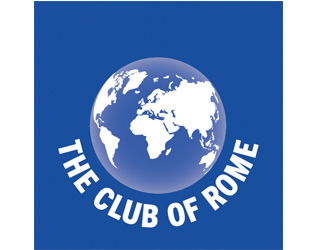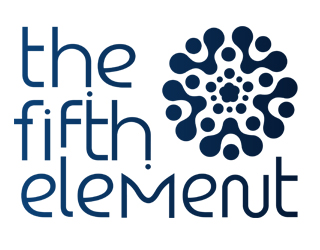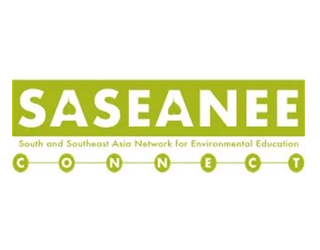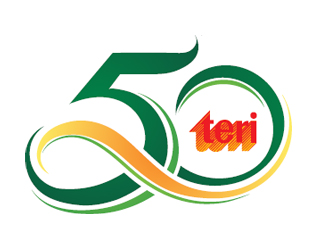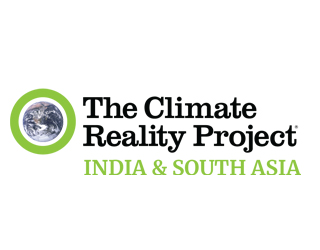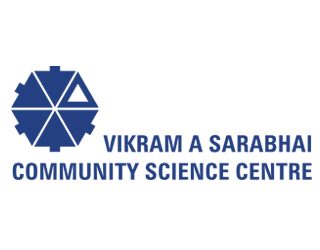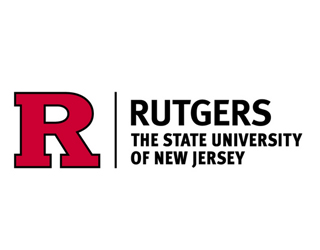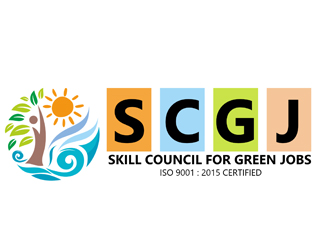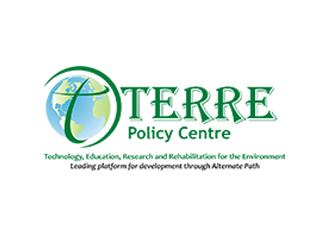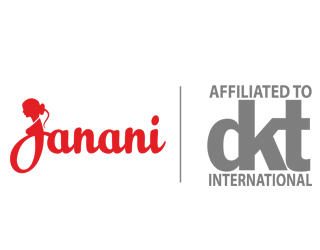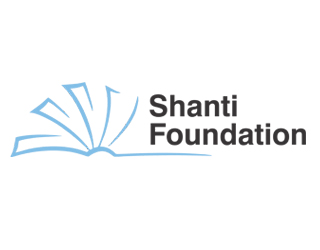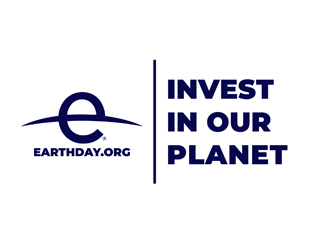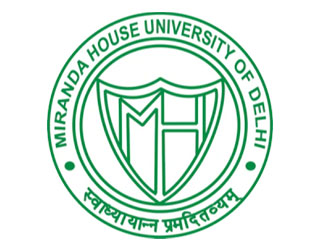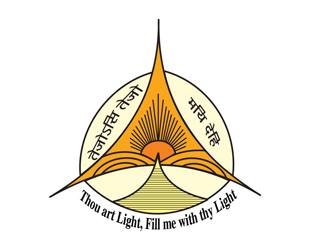Welcome Note from Mr Praveen Garg, IAS (Retd) President , Mobius Foundation Empowered youth with green skills holds the key to unlocking boundless opportunities for a sustainable way of living and working.It is with the great humility and a profound sense of responsibility/commitment that I welcome you to the 7th ICSE 2025International Conference on Sustainability Education (ICSE 2025), centred on the vital theme Sustainability Education for Green Jobs.
ICSE 2025 convenes at a crucial juncture as our world faces critical sustainability challenges. This conference seeks to explore transformative approaches to education that empower learners with the values, knowledge, and practical skills needed to thrive in a green economy. Education’s role today is not just to prepare students for employment—but to shape leaders and changemakers capable of building a sustainable future.
Green jobs represent more than new career opportunities; they are the foundation for communities and youth to actively participate in designing solutions for a better tomorrow. Through focused sessions, dialogues with industry leaders, curriculum innovations, and support for diverse learners, ICSE 2025 bridges classroom learning and real-world sustainability careers.
ICSE 2025 serves as an inclusive platform for global and local collaboration, connecting educators, policymakers, industry experts, and youth. The conference underscores the need to align education with emerging employment opportunities in renewable energy, energy efficiency, eco-tourism, sustainable agriculture, the circular economy, and other green sectors.
Inspired by the United Nations Decade of Education for Sustainable Development, this conference invites all participants and stakeholders to work collectively for a greener, more equitable and sustainable world.
Together, let us transform education into opportunity and action for people and planet.
I am happy to extend a very warm welcome to all distinguished delegates, guests and partners at the 7th International Conference on Sustainability Education (ICSE) 2025, taking place on September 17–18 at the India Habitat Centre, New Delhi. The theme of this year's conference is “Sustainability Education for Green Jobs”. This theme highlights a crucial dimension of our times: the intersection of education, environmental stewardship, and the emerging green economy. By equipping young people with the right knowledge, competencies, and ethical grounding, we can empower them to thrive in green jobs and contribute meaningfully to building a just and sustainable future for all.
I believe the 7th ICSE 2025, like its previous versions, will once again serve as a powerful platform for educators, policymakers, industry leaders, youth, and sustainability champions to come together, exchange ideas, and forge pathways for collaborative action. With its diverse sessions, innovative formats, and opportunities for networking, this conference will inspire collective progress towards our shared vision of a greener and fairer world.
At the Mobius Foundation, we remain steadfast in our commitment to advancing sustainability education as the foundation for a better tomorrow. I look forward to your active participation and valuable contribution in the conference.
I warmly invite you to join us in the conference and make it a milestone in reimagining education for a greener, more prosperous future.
Pradip Burman
Chairman of Mobius Foundation
On behalf of the Mobius Foundation and the ICSE team we are delighted to extend a very warm welcome to all our distinguished delegates and guests to the 7th International Conference on Sustainability Education (ICSE), taking place on September 17–18, 2025, at the India Habitat Centre, New Delhi.
The theme for this year, “Sustainability Education for Green Jobs,” underscores the vital link between education, environmental stewardship, and the rapidly expanding green economy. As the world faces the urgency of climate change, the shift towards a circular economy, and the imperative of a just transition, there is a growing demand for a skilled and value-driven workforce ready to thrive in green jobs and actively shape a sustainable future.
ICSE is not just a conference, it is a gathering of passionate minds and compassionate hearts who share a common vision: to create a greener, fairer, and more hopeful world. We are deeply humbled to see how this platform has grown into a global family of educators, innovators, youth leaders, and changemakers who continue to inspire one another to act for people and the planet.
Since its inception in 2019, ICSE has been a journey of transformative learning, innovation, and collaboration, made possible through the unwavering support of our dedicated team, partners, esteemed delegates, learners, speakers, and panelists. Each year, we have introduced exciting formats and themes to make the conference more engaging, meaningful, and impactful. ICSE 2025 continues this tradition with special plenaries, panel discussions, fireside chats, technical sessions and workshops, Sustainability Samvad, lightning talks by environmental influencers, the Youth 4 Earth Awards, a vibrant exhibition space, and the screening of Wake Up Planet Earth. This year also brings fresh themes and innovative sessions designed to inspire action and collaboration. Alongside these, delegates will enjoy valuable opportunities for networking, partnership-building, and collective reflection.
We look forward to your participation as we carry forward this journey and reimagine education as a pathway to green jobs, careers, entrepreneurship and a sustainable future for people and the planet.
Warmest regards,
Dr. Ram Boojh
Convener ICSE & Advisor, Mobius Foundation
Ajay Mathur is Director General of TERI – The Energy & Resources Institute, and a member of the Prime Minister’s Council on Climate Change. He was Director General of the Bureau of Energy Efficiency in the Government of India from 2006 till February, 2016, and responsible for bringing energy efficiency into Indian homes, offices, and factories, through initiatives such as the star labelling programme for appliances, the Energy Conservation Building Code, and the Perform, Achieve and Trade programme for energy-intensive industries.
Dr. Mathur was earlier with TERI; headed the Climate Change Team of World Bank in Washington DC; was President of Suzlon Energy Limited; and also headed the interim Secretariat of the Green Climate Fund. He has been a key Indian climate-change negotiator, and was also the Indian spokesperson at the 2015 climate negotiations at Paris. He is a global leader on technological approaches to address climate change; he co-chairs the Energy Transitions Commission, global group of industrial, financial and think-tank leaders which is suggesting approaches for companies and countries to move towards climate-friendly energy futures.
Ashok Kumar is a Professor of Management at the renowned Seidman College of Business, Grand Valley State University, MI (USA). He holds a Ph.D. in Operations Management from Purdue University, USA and a M.S. from University of Birmingham, UK and B. Tech. in Mech. Engineering from IIT – Kanpur. He is the Founder and Chairman of Global Foundation for Advancement of Environment and Human Wellness. Prof Kumar has over 30 years long distinguished career in academics in the USA. And has served as Distinguished Chair of Fulbright Scholar Program and E. Seidman Endowed Chair; and has been decorated on a number of occasions including Best University Professor of the Year Award, Outstanding Contributions in a Discipline Award, Lifetime Achievement award as an Operations Management Scholar (by IIT - Delhi), Outstanding Contributions to Quality Activities in India by National Institute of Quality Assurance, Sustainability Champion Award and an inductee in Anbar Journal’s Hall of Fame research awards, just to mention a few. Prof Kumar was also the National Chair of Fulbright Selection Committee, United States India Education Foundation India. His current life-time goal and ambition is to be a significant player in India’s struggle with environmental issues and dedicate his remaining years and much of his fortune for uplifting the environmental situation in India.
An engineer by education, Mr Narasimha Murthy decided to dedicate his life in service. He came to Sai Baba at a tender age of 19. After a few years, he became the Warden for the various campuses of the Sathya Sai Institutions, and served in this capacity for over 40 years, and has overseen generations of students right from the 1980s. He has authored several books, which have been widely translated into many languages worldwide.
Mr Narasimha Murthy is spearheading the establishment of schools and colleges for the underprivileged strata of society, where values based integral education is provided totally free of any charges. He is the Chancellor of the Sri Sathya Sai University for Human Excellence based in Karnataka in South India. Over 5000 boys and girls are benefiting from free education in 23 Campuses in the State of Karnataka and Telangana.
Chandrika Bahadur is the President of the SDSN Association. Previously she was Director of Education Initiatives at the UN SDSN. From 2008-2011, she was advisor to the Chairman and Managing Director at Reliance Industries, where she helped set up Reliance Foundation, a non-profit philanthropic foundation focusing on areas of education, health, rural development, and urban renewal.
From 2001-2008, Chandrika worked with the United Nations in different roles. In her last assignment, she was a Policy Advisor at UNDP’s Bureau for Development Policy in New York, working in Africa to help Ministries of Finance and Planning align their strategies to the Millennium Development Goals (MDGs), across 20 countries. From 2003-2006, she was part of the leadership team of the UN Millennium Project, an advisory group convened by the then UN Secretary-General Kofi Annan to recommend strategies for the MDGs. From 2001-2002 she worked on trade and HIV and AIDS programs at the United Nations. She has prior teaching experience at Harvard and Columbia universities.
Chandrika holds a Masters degree from the John F. Kennedy School of Government, Harvard University, an MBA from the Indian Institute of Management, Ahmedabad, and a BA (Honours) in Economics from St. Stephen’s College, Delhi University.
Prof Daniella Tilbury is an academic, educator and sustainable development leader. Her international and policy work contributed significantly to the progression of sustainable development as a key agenda for the future, and to the development of Education for Sustainable Development in particular.
She was one of the first to develop research on Education for Sustainable Development (ESD) with her thesis making the headlines, in the early 1990 and then became one of the first to put the ambition into practice, in attempting to make ‘whole-institution’ sustainability a reality. She has been recognised with various international awards for this work. She was made a Don in July 2018, by the University of Cambridge, for her scientific and social contributions to sustainability.
Prof Tilbury’s work on frameworks for reorienting education towards sustainable development led to her taking on UN policy advisory roles and to her Chairing numerous Committees on sustainable development, culture and/or education during 1992 and 2015. In this capacity she has commissioned by UNESCO during the UN Decade in Education for Sustainable Development to develop think pieces including an expert review of learning for sustainability and sector evaluation of higher education. As Chair of the MEEG, she shaped the development of UNESCO's global monitoring and evaluation reports in ESD and reported on progress to various UN meetings including Bonn 2009 and Nagoya 2014.
Daniella has acted as lead evaluator for sustainability education programmes funded by the European Union, World Conservation Union (IUCN), World Wide Fund for Nature (WWF), British Council and government agencies in Australia, Tanzania, Madagascar, South Africa, Venezuela, Brazil, Colombia, China, Korea, Hungary, Vietnam, Australia, Spain, Italy and US. She was a member of the Board and team at WWF Australia that brought Earth Hour to the world in 2007.
Prof Tilbury was the inaugural Vice-Chancellor and CEO of the University of Gibraltar. Over five years she established the research specialisms, strategic direction and commercial viability of this ambitious green institution. Her latest challenge is as HM Government Commissioner for Sustainable Development in Gibraltar.
Ecomasters author, Donna L. Goodman is a globally respected and widely published expert on issues related to environment and children.
Donna has been a champion of the rights and participation of child and young people in the environment sector for more than 25 years. Her international development work has been widely published by UN partners including UNICEF, United Nations Environment Programme (UNEP), World Health Organization (WHO) and others. In the private sector, her work has been published by McGraw-Hill, Turner Broadcasting for Cartoon Network and MTV through production of a documentary special program about water featuring JayZ.
She has documented and evaluated water, sanitation and hygiene, environmental education, climate change adaptation and child participation initiatives and activities in close to seventy (70) of countries worldwide. As an advocate for the children of the world, she worked as a driving force toward the recognition of children and youth as a constituency to the UN Framework Convention on Climate Change (UNFCCC), what is now known as YOUNGO, and is the author of a number of publications which both raise awareness of policymakers to the critical importance of considering young people in emerging policy, to train youth leaders who work with children and to raise awareness and bridge policy gaps between education, environment and participation. In practical terms, she is very pleased and proud to have assembled a team of brilliant young leaders throughout the world who are working with children as part of Earth Child Institute’s Global Action Classroom project and has learned volumes about children as a single mom of three amazing grown children, Stacey (age 30, Lindsey (age 28) and Elliot Goodman Lee (age 23) and grandmother of Emma, age 3.
Jeffrey D. Sachs is a world-renowned economics professor, bestselling author, innovative educator, and global leader in sustainable development. He is widely recognized for bold and effective strategies to address complex challenges including debt crises, hyperinflations, the transition from central planning to market economies, the control of AIDS, malaria, and other diseases, the escape from extreme poverty, and the battle against human-induced climate change. He has been advisor to three United Nations Secretaries-General, Kofi Annan, Ban Ki-moon, and currently Antonio Guterres.
Professor Sachs was the co-recipient of the 2015 Blue Planet Prize, the leading global prize for environmental leadership. He was twice named among Time magazine’s 100 most influential world leaders and has received 28 honorary degrees. The New York Times called Sachs “probably the most important economist in the world,” and Time magazine called Sachs “the world’s best known economist.” A survey by The Economist ranked Sachs as among the three most influential living economists.
Professor Sachs serves as the Director of the Center for Sustainable Development at Columbia University. He is University Professor at Columbia University, the university’s highest academic rank. Sachs is the Director of the UN Sustainable Development Solutions Network and a commissioner of the UN Broadband Commission for Development. Sachs was Director of the Earth Institute from 2002 to 2016.
Sachs has authored and edited numerous books, including three New York Times bestsellers, The End of Poverty (2005), Common Wealth: Economics for a Crowded Planet (2008), and The Price of Civilization (2011). Other books include To Move the World: JFK’s Quest for Peace (2013), The Age of Sustainable Development (2015), Building the New American Economy: Smart, Fair & Sustainable (2017), and most recently A New Foreign Policy: Beyond American Exceptionalism (2018).
Prior to joining Columbia, Sachs spent over twenty years as a professor at Harvard University, most recently as the Galen L. Stone Professor of International Trade. A native of Detroit, Michigan, Sachs received his B.A., M.A., and Ph.D. degrees at Harvard.
Kartikeya Sarabhai is one of the world's leading environmental educators and a dedicated community builder. He was educated in Cambridge (Tripos in Natural Science) and went on to do post graduate work in development communication at the Massachusetts Institute of Technology (MIT).
Mr. Sarabhai is the founder director of the Centre for Environment Education headquartered in Ahmedabad, with 40 offices across India. Mr. Sarabhai’s primary focus is on the greening of India's formal education system, and initiatives for biodiversity education.
He is a Trustee of the Sabarmati Ashram Preservation and Memorial Trust, Mr. Sarabhai is also a member of many committees set up by the Government of India and other organizations.
Recipient of 2016 International Brandwein Medal by Brandwein Institute and the IUCN-CEC in recognition of his lifetime work for inspiring new generations to experience, embrace and love nature first hand. In 2012 the President of India conferred him with Padma Shri, one of India’s highest civilian awards.
Mr. Sarabhai is the Co-chair of the Earth Charter International Council and the chair-holder of the UNESCO Chair on Education for Sustainable Development and the Human Habitat. He is the Co-chair of the first Priority Action Area – Advancing Policy of the Global Action Programme.
As a well known advocate of education for sustainable development, Mr. Sarabhai has actively contributed to the global negotiation processes around the UNDESD and the formulation of the SDGs.
Ken Berlin is the president and CEO of The Climate Reality Project. Ken has devoted his career to leadership on environment, energy and climate change issues. A trusted advisor to businesses, non-profits and federal and state governments, Ken has been recognized as one of the top climate change attorneys in the world and has extensive expertise on international environmental issues ranging from clean energy to biodiversity. Most recently, Ken chaired the Skadden Arps Environmental and Climate Change practices and served as the Executive Vice-President and General Counsel for the Coalition for Green Capital. He was also a leader in establishing the Climate Speakers Network. In 2012, Ken served as Chair of the Obama Energy and Environment Team. Ken has served on the boards of several organizations including the Environmental Law Institute (ELI), the American Bird Conservancy, the Alliance for Zero Extinction, the Rare Center for Tropical Conservation, the Earth Day Network, and Defenders of Wildlife. Ken lives in Bethesda, Maryland with his family.
Gosia graduated university with a degree in environmental engineering, and has 18 years of experience working in environmental education. She has been implementing these ideas successfully in Poland for 12 years, engaging over 750 schools in that time. Gosia is an ecologist, educator, trainer, and initiator of many activities with schools and youth that have helped to enhance their roles in opinion formation and culture animation within their local communities. She is a co-author and implementer of the nationwide Schools for Sustainable Development Program and initiated and launched the international Eco-Schools Program and ‘Green Flag’ Certification System in Poland. Gosia is a founder and Executive Board member of Foundation of Active Places and People in Poland. Currently she is working for Foundation for Environmental Education in its head office in Denmark as the YRE International Director and project manager. She is developing a global programme to inspire youth from all around the world to actively participate in local development and increase their environmental awareness, knowledge and critical thinking.
With over two decades of experience in sustainability education, Mark S. McCaffrey has led the development of local, national and international "network of networks" including the Boulder Area Sustainability Information Network (BASIN), the Climate Literacy & Energy Awareness Network (CLEAN), and the UNFCCC Education, Communication and Outreach Stakeholders Community (ECOS). Author of Climate Smart & Energy Wise (Corwin 2014) and co-author of a forthcoming paper on optimized scaling of climate action using the "powers of 10" orders of magnitude between a single individual and all of humanity, McCaffrey currently resides in Central Europe outside of Budapest.
Martin Siegert is Professor of Geosciences and co-Director of the Grantham Institute, Imperial College London. He was formerly Head of the School of GeoSciences and Assistant Principal for Energy and Climate Change at the University of Edinburgh, and director of the Bristol Glaciology Centre at the University of Bristol. At Edinburgh he led the creation of the Edinburgh Centre for Carbon Innovation (ECCI).
He was educated at Reading University, where he gained his degree in Geological Geophysics, and at Cambridge University, where he was awarded his PhD in the numerical modelling of large ice sheets, at the Scott Polar Research Institute. Siegert’s research interests are in the field of glaciology. He uses geophysical techniques to quantify the flow and form of ice sheets both now and in the past. Using airborne radar he has identified and located ~400 subglacial lakes, has discovered ancient preglacial surfaces hidden beneath the existing ice and has demonstrated how sub-ice water is generated and interacts with the flow of ice above. He leads the UK NERC Lake Ellsworth Consortium, which aims to directly measure and explore an ancient subglacial lake in West Antarctica, to search for life in its water and comprehend records of climate held in sediments. Siegert has appeared regularly on national TV and radio to discuss his research, including BBC Radio 4’s Life Scientific in August 2012. In 2007 he was elected a Fellow of the Royal Society of Edinburgh. He was awarded the 2013 Martha T Muse Prize in Antarctic Science and Policy.
Natarajan Ishwaran has more than 40 years’ experience working with wildlife conservation, protected area management, environment and sustainable development linked initiatives at global, regional, national and local levels. He has served as Chief, Natural Heritage, World Heritage Centre and Director, Division of Ecological and Earth Sciences and Secretary of the Man and the Biosphere (MAB) Program during a 25-year career in UNESCO. Currently he is Editor-in-Chief of the Elsevier Journal Environmental Development and is linked to academic/research/training institutions in China, Republic of Korea and UK. He has a keen interest in international relations in environment, climate change and sustainable development and speaks and writes on related themes and issues.
Mr Brij Mohan Singh Rathore, has been a professional forester from Indian Forest Service, has over 36 years of professional experience in the field of participatory forestry, regeneration of degraded lands, landscape approach to bio- diversity conservation and development, and environmental education. He has worked in Government (at field, state and national level), national research & training institutions and with NGO sector. As Joint Secretary in Ministry of Environment & Forests, he was country focal point for UNCCD, and represented country as Vice Chair on UNCCD CoP Bureau, as well as Chair of Asia & Pacific region.
He has been recipient of national award, “Indira Priyadarshini Vraksha Mitra” for community based forest management, and State Governments’ Gold Medal for professional excellence in forestry. A gold medallist in Masters of Science (Botany), he holds Masters in Forestry from Indira Gandhi National Forest Academy Dehradun.
At International Centre for Integrated Mountain Development (ICIMOD) Kathmandu, Nepal as Chief Policy Adviser, he is actively engaged in facilitating multiple stakeholders processes/institutions for sustainable mountain development , with emphasis on improving policy environment .
Dr. Pramod Kumar Sharma, Senior Education Director at Foundation for Environmental Education, has over 20 years of experience working with environmental education and Education for Sustainable Development. Before joining FEE, he was the Programme Director at the Centre for Environment Education in India. At FEE, he is responsible for the overall programme development, administration, supervision, and evaluation of the three formal educational programmes (Eco-Schools, LEAF, and YRE). He also directly supervise two International Programme Directors (LEAF and YRE) and a full-time Eco-Schools Programme Coordinator.
Rajendra Shende, an alumnus of IIT (Indian Institute of Technology) Bombay and former Director of United Nations Environment Programme (UNEP) in Paris.
He presently serves as Senior Expert nominated by Government of India to United Nations Environment’s Technology and Economic Assessment Panel (TEAP).
He is, a Chairman of TERRE Policy Centre and Advisor to Paris Based ‘Media India’ agency. Member of Governing Council of MIT-World Peace University of India. Mr. Shende is also one of the founders of ‘India-China Friendship Association for Environment and Y2Y (Youth to Youth) collaboration between India and China, along with Operation Earth and CBCGDF of China. He was appointed by ‘Panda Guide’ CSR arm of Sinochem, China’s premium Petrochemical Industry.
Mr. Shende was the Coordinating Lead Author of the special report of IPCC (Intergovernmental Panel on Climate Change of United Nations) on scientific linkages between the stratospheric Ozone Layer and Climate Change which won the Nobel Peace prize given to IPCC for in 2007.
Mr Shende recently launched Smart Campus Cloud Network for mainstreaming Sustainable Development Goals ( SDGs) into educational campuses through the ‘ learning by doing’ using the IoT, AI and Cloud Networking.
Dr. Vinitaa Apte, President, TERRE Policy Centre, worked with the UNEP as a communication consultant/expert on Sustainable Development and Green Economy. She is renowned for creative concepts and practical programmatic approaches in developing, implementing, reporting and monitoring national strategies for ecosystem nurturing. Innovation led visionary at global as well as enterprise level in strengthening corporate social responsibility, community led nature conservation and restoration Status.
Vivek Menon is a wildlife conservationist, environmental commentator, author and photographer with a passion for elephants. He has been part of the founding of five environmental & nature conservation organizations in India. The winner of the 2001 Rufford Award for International Conservation for his work to save the Asian elephant, Menon is the Founder, Executive Director and CEO of the Wildlife Trust of India as well as Advisor to the International Fund for Animal Welfare.
In India, he plays a role in advising the government on natural heritage conservation as a part of several committees including the Project Elephant Steering Committee, National Wildlife Action Plan Committee, CITES Advisory Committee and the Governing Council of the Central Zoo Authority. He is a member of four State Advisory Boards for Wildlife and an Honorary Wildlife Warden of Delhi. In the interphase between business and Biodiversity, he is the Co-Chair of Leaders for Nature, IUCN and an Advisory Council Member of the CII-ITC Centre of Excellence for Sustainable Development.
Internationally, Menon is the Chairperson of the IUCN SSC Asian Elephant Specialist Group since 2013 and a member of the Species Survival Commission Steering Committee of the IUCN, on the International Jury of the Future for Nature Awards (Netherlands) and an Advisor of the Marjan Centre of Kings College, London. In the past, he has served as a consultant to the Kenya Wildlife Services and helped establish the first elephant reserve of Myanmar. He has trained wildlife officers of over fifty countries in wildlife crime prevention and has attended CITES meetings for over twenty years as a Technical Advisor to the Indian delegation and as an observer.
He is also the author or editor of ten wildlife books including the recently published bestselling Indian Mammals, A Field Guide, scores of technical reports and more than 200 articles in various scientific and popular publications.
Dr. Saxena started his career as Indian Forest Service officer in 1992. He has over 26 years’ experience in Natural Resource Management, environmental issues, protected areas related policy and management issues, fund raising, Hindukush Himalayan Environment issues of Asian sub region of South Asia, multilateral conventions related to UNCCD, CBD, UNFCCC, CITES and CMS, implementation of externally aided EU and JICA projects, forestry research, agroforestry, community forestry, eco-tourism, HR management of Indian Forest Service (IFS) Officers, among others. Dr. Saxena has vast managerial and administrative experience of forest management at field level in various districts of Haryana State, India as Deputy Conservator of Forests, Conservator of Forests and Chief Conservator of Forests.
Dr. Saxena’s experience at policy and secretariat level include assignments in Ministry of Environment, Forest & Climate Change (MoEFCC), Government of India as Director, Deputy Inspector General of Forests (DIGF) and Private Secretary to the Minister (Environment and Forests). He has also held assignments as State of Haryana representative in Delhi as Additional Resident Commissioner, and Administrator, Trade Fair Authority of Haryana.
On all his assignments, Dr.Saxena has demonstrated skills and expertise on Natural Resources Management and has also contributed to global assessments on land degradation and restoration related IPBES publications and is on roster of experts of UNCCD.
Dr. Saxena holds a Doctoral Degree in “Climate Change & Agroforestry” from FRI University, India, Masters in Forestry and Physics, Bachelor degree in Law and Postgraduate Diploma in Environmental Law. He speaks English and Hindi.
He was educated at Brighton College and Corpus Christi College, Cambridge, taught at Shrewsbury and was Head of Languages at Wellington College, before becoming Deputy Head at Cranleigh and then Headmaster of King’s College Taunton. From 2007-17, he was Headmaster of King’s Chester.
He has two grown up sons and a daughter, chairs HMC’s Universities Committee, speaking for the sector on Higher Education matters, and sits on the Court of the University of Leicester and the Governing Body of Colfe’s School.
David Bates is the Course Director of Whitgift Summer School and is the World Environmental School Coorg Project Coordinator for Whitgift School. He also teaches English as an Additional Language at Whitgift.
He joined Whitgift School in 2015 in order to set up the academic aspects of their international summer school as the Director of Studies. In 2016 he became the Course Director and took overall responsibility for the programme. Prior to joining Whitgift School, he taught English as a Foreign Language in Thailand before becoming a DELTA and PGCE-qualified Advanced Practitioner at Chichester College of Further Education, where he also managed their international summer school.
He lives in Brighton with his partner and their son and daughter and has a previous career in Retail Management.
In the summer of 1960, a young Englishwoman arrived on the shores of Lake Tanganyika in what is now Tanzania, East Africa. As Jane Goodall first surveyed the mountains and valley forests of what was then called the Gombe Stream Chimpanzee Reserve, she had no idea her coming efforts would redefine the relationship between humans and animals or that the project would continue into the 21st century.
At first, the Gombe chimps fled whenever they saw Goodall. She persisted, however, watching from a distance with binoculars, and gradually the chimps allowed her closer. One day in the autumn of 1960, she saw chimpanzee David Greybeard strip leaves off twigs to fashion tools for fishing termites from a nest. At that time scientists thought humans were the only species to make and use tools, but here was evidence to the contrary. On hearing of Goodall’s observation, Dr. Leakey said: “Now we must redefine tool, redefine man, or accept chimpanzees as humans.” This would be one of Goodall’s most important discoveries.
In 1961, she entered Cambridge University as a Ph.D. candidate, one of very few people to be admitted without a college degree. She earned her Ph.D. in ethology in 1966. While the Gombe Stream Research Centre, which Dr. Goodall established in 1965, eventually became a training ground for students interested in studying primates. Today, it hosts a skilled team of researchers and field assistants, including many Tanzanians.
In 1977, Dr. Goodall established the Jane Goodall Institute. The Institute supports the continuing research at Gombe and is a global leader in the effort to protect chimpanzees and their habitats. It is also widely recognized for establishing innovative community-centered conservation and development programs in Africa, and Jane Goodall’s Roots & Shoots, the global environmental and humanitarian youth program. Roots & Shoots is now active in more than 50 countries and since its inception has greatly impacted participants of all ages in over 100 countries.
The Roots & Shoots program began in 1991 with 12 Tanzanian High School Students from nine schools that were worried about things like the destruction of the coral reef by illegal dynamiting, poaching in the wildlife parks, lack of help for street children, pollution of rivers, and a multitude of other issues they wished to correct. After a lengthy discussion, those 12 students went back to their schools, formed groups with peers who had similar concerns, and after another meeting was held with these additional students, the Roots & Shoots program was official born.
Since then, Roots & Shoots has developed differently in each country, but every group becomes involved in hands-on programmes of their choosing, one for the community, one for animals (including domestic animals) and one for the environment we all share. Sometimes it is embedded in a school curriculum and so reaches all children. Often this is because the education ministry asks us to provide curriculum materials. A whole class or school can become involved, or a family group can form – there is room for all!
Dr. Goodall’s vision was for a critical mass of young people with a shared philosophy – the Roots & Shoots philosophy. It was found that once students had been active Roots & Shoots members they are impacted for life. One of the young men who was part of the original group of twelve was asked what aspect of Roots & Shoots had been most significant. After a moment he said, “I know that wherever I go in the world, even if I know no one, if there is a R&S group I have found my family”.
Prof Parth Sarathi Roy is professional in Earth Observation Science: with specialization in vegetation Science, LULCC, Biodiversity & Climate Science. Thirty-five years in ISRO/DOS (1977-2012); Superannuated as Director Indian Institute Remote Sensing (IIRS). Chair Professor at University of Hyderabad, (2012-18). Presently, Senior Adviser RS & GIS Program & NASI Senior Scientist at ICRISAT. Elected fellow of various academies viz., Fellow of National Academy of Science, India (FNASc), Fellow of National Academy of Agricultural Sciences (FNAAS), Fellow of National Institute of Ecology (FNIE), Fellow of Indian Society of Remote Sensing, Fellow of Telangana Academy of Sciences. B P Pal National Environmental Fellow award by MoEFCC, Government of India. ISRO Performance Excellence Award. Bhaskara Award by ISRS. Visiting Professor in University of Illinois, Urbana, US.
Sadhvi Bhagawati Saraswati, PhD is a renowned female spiritual leader in India. She is Secretary-General of Global Interfaith WASH Alliance, launched by UNICEF, the world’s first alliance of religious leaders for Water, Sanitation and Hygiene, President of Divine Shakti Foundation, a charitable organization bringing education and empowerment to women and children, and Director of the world-famous International Yoga Festival. She also serves as Vice-Chair of the United Nations’ Advisory Council on Religion, and on the Steering Committee of the Partnership for Religion and Sustainable Development. Sadhviji has received numerous awards and recognition for her leadership in India, including from the Cabinet Minister of Water Resources as well as from the Ambassador of the United States to India. Originally from Los Angeles, and a graduate of Stanford University, Sadhviji has lived at Parmarth Niketan in Rishikesh, India for 23 years, where she gives spiritual discourses, satsang, and leads myriad humanitarian programs.
Ahmed Athif is a teacher by profession. He completed his ‘Masters of Special Needs and Intervention Education’ from Griffith University, Australia. He has 10 years of experience working in schools as a teacher and principal. Since 2006, he has been working in the Ministry of Education as the head of the Inclusive Education program – 13 years. He is the Director General of Department of Inclusive Education.
Since 2010, he also has been the President of the ‘Disability Council of Maldives’ and represented education sector in the council. Athif has won the national recognition award in 2016 for his work in the field of education to ‘strengthen services for children with special needs’ in the Maldives.
Athif has been teaching for various colleges (in Maldives) in the field of special needs and inclusive education. In addition, he has developed many teaching modules and programs in the same field.
In the past 20 years, he has been actively engaging in national and international forums in community empowerment, education and awareness.
Sunita Narain is a Delhi-based environmentalist and author. She is currently the Director General of Center for Science and Environment (CSE) and Editor of the fortnightly magazine, Down To Earth. Dr. Narain plays an active role in policy formulation on issues of environment and development in India and globally. She has worked extensively on climate change, with a particular interest in advocating for an ambitious and equitable global agreement. Her work on air pollution, water and waste management as well as industrial pollution has led to an understanding of the need for affordable and sustainable solutions in countries like India where the challenge is to ensure inclusive and sustainable growth. She was a member of the Indian Prime Minister’s Council on Climate Change and has been awarded the Padma Shri, the fourth highest civilian honour. In 2005, the Centre for Science and Environment, under her leadership was also awarded the Stockholm Water Prize. In 2016, Time magazine selected her as one of the most influential people in the world. She received “The Order of the Polar Star” award from the Swedish Government in 2017. Penguin has recently published her new book Conflicts of Interest, in which she has written about CSE’s campaigns from air pollution to colas to tigers. She continues to serve on national and international committees on environment.
Jayanthi GUNASEKARA is the director general of the National Institute of Education, Sri Lanka. She received a Bachelor of Science Degree and a number of Post-degree qualifications from the Universities in Sri Lanka, winning a Gold medal for Post-graduate Diploma in Education.
She received a World Bank scholarship and followed Masters and PhD at the Institute of Education, University of London and won the Best Doctoral Theses Award, 2004 from the British Educational Leadership, Management and Administration Society.
She started her career as a mathematics teacher and subsequently joined the Sri Lanka Education Administrative Service. Later she joined the National Institute of Education (NIE). After completing 26 years of service in various positions at the NIE, she joined the National Education Commission (NEC) as the vice chairperson in 2013. She assumed duties as the director general of the National Institute of Education in 2016.



